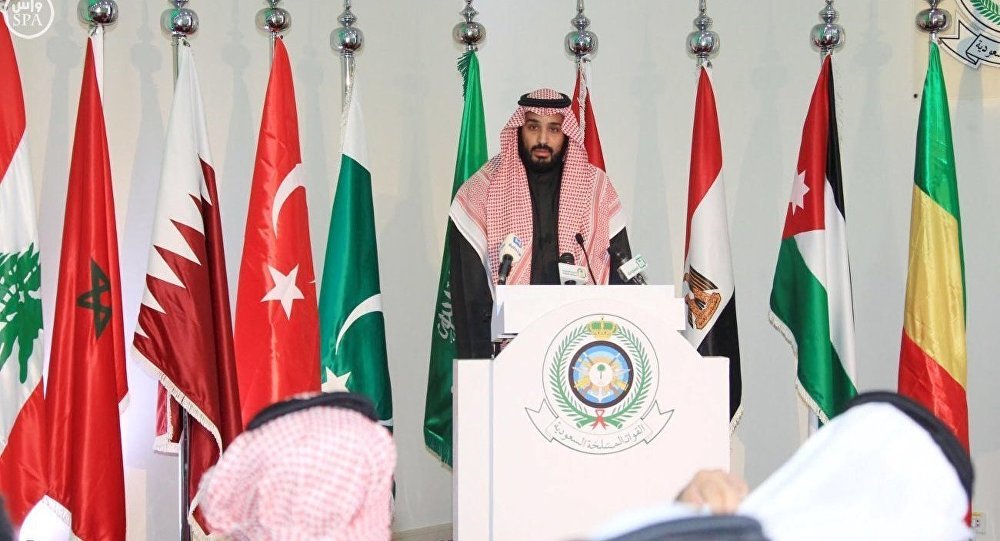Saudi Arabiens kald til våben har vundet støtte. Indtil nu har 34 lande udtrykt interesse i at slutte sig til en muslimsk anti-terrorisme koalition, som Riyadh er ved at danne.
Blandt disse er lande med hovedsagelig shiitter og sunnier blandt befolkningen, omfattende, Jordan, De forenede Arabiske stater, Palæstina, Tunesien, Libyen, Ægypten, Katar, Yemen, Tyrkiet, et antal afrikanske lande, såvel som Pakistan, Bangladesh og Malaysia. 10 andre lande sagde, at de var parat til at slutte sig til koalitionen i fremtiden.
Kommentar: Det har siden vist sig, at dette initiativ primært består af Sunni styrede lande, og at adskillige af de lande som tilsyneladende er en del af denne koalition først fandt ud det, da de hørte om det i pressen. Andre har fået kolde fødder.
Kommentar: Denne artikel er blot delvis oversat til dansk af sott.net fra:
Saudis attempting to regain Mid-Eastern influence with 'anti-terror' coalition
Saudi Arabia's Defense Ministry Mohammad bin Salman did not elaborate on what measures would be taken against terrorists. He only said that a headquarters will be established in Riyadh to "coordinate military operations."
The prince also did not give any details on what measures would be taken in the domestic policy of the coalition members, as terrorists receive funds from several of these countries.
This cannot be just a coincidence, an article for Il Manifesto read. Saudi Arabia has pushed to unite the Arab world against terrorism in a bid to restore its positions in the region. The kingdom has taken a back seat after Russia emerged as a major player in region, the author underscored.
After Riyadh has wasted months in attempts to use the Yemeni conflict to weaken Iran it realized that Syria was almost out of its zone of influence. This is why the Saudi government has put focus on Syria again. This was not a coincidence that talks with Houthi rebels in Yemen came along with the creation of the anti-Daesh coalition, the article read.
Besides Saudi Arabia, other members of the coalition also want to improve their roles in the region. Many Mideast nations have lost their influence in regional affairs, especially Jordan, Bahrain and the UAE, the author noted.
It's also no coincidence that the news about the coalition came a day after US President Barack Obama's call for Arab nations to intensify the fight against Daesh. Obama's presidential term is nearing its end and it seems like he is disappointed with the results the US' weak strategy has produced in the Middle East. Now there is one last chance for Washington to restore its role in the region.




Kommentar: Desuden er der det groteske i en anti-terror koalition som er ledet af Saudi Arabien, som er en af de største sponsorer af terrorisme verden over. Tyrkiet som åbenlyst arbejder sammen med Islamisk Stat er også en del af koalitionen, så spørgsmålet er hvem disse aktører ser som terrorister? Glem ikke at Saudi Arabien for tiden udøver statsterror i Yemen.
Se også: Knowledge and Freedom: Antidote to the rising fascism